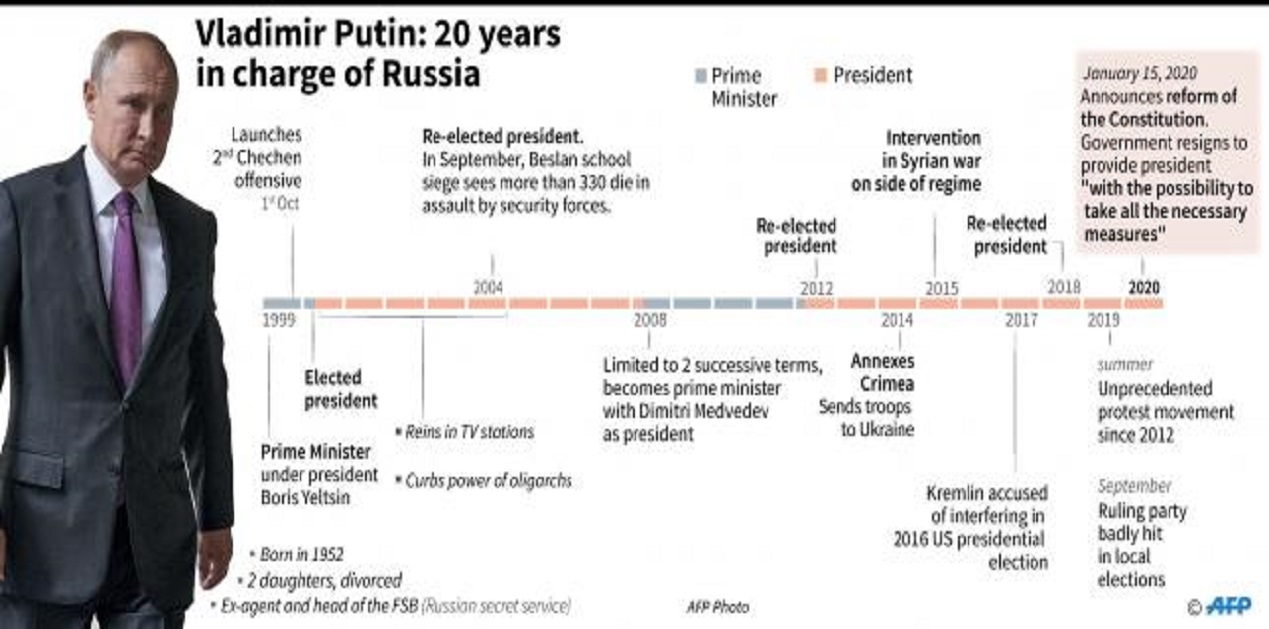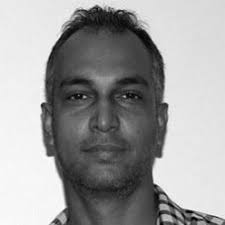Prime Minister Dmitry Medvedev and his entire government resigned on January 15th after a televised speech by President Putin to the federal assembly wherein he proposed sweeping changes to the constitution. These changes will modify the equation of power-centres in Russia. Currently, power is concentrated around the presidency in Moscow. Vladimir Putin has been holding the post since 2000, barring a 4 year hiatus, when he held the position of the Prime Minister while Medvedev was the President.
The changes in the constitution proposed by Putin are designed to weaken his successor and empower the parliament and federal states. The Prime Minister will hereafter be appointed by the Russian Parliament, the Duma, and not by the President as is currently the case. Same goes for ministers in the government. The State Council, which has regional governors and some federal officers in it, will be given new powers. Other regional and local governments may also get more power. This is not to say that the Presidency will become irrelevant. The position of the President will largely retain its powers. However, unlike the current setup, where the Kremlin holds all the cards, the parliament and other federal and central authorities may now share power and eventually form a system of checks and balances.
President Putin has made it clear that he will not run for President after 2024, when his current term ends. This has led to speculation that the proposed changes may be a ploy by Putin to keep himself in power beyond 2024. This narrative is predominant in the West, primarily in the US. Earlier in 2008, Putin had triggered constitutional changes which allowed him to contest elections and become president again in 2012. However, a closer inspection suggests that this time the motive may be different.
Putin is 67 years old and will be 71 when his current term expires. He has explicitly stated that he does not want to remain in power forever. By distributing power to the parliament and federal authorities, Putin may be attempting to build up a system of institutions in Russia. Such a setup ought to prevent the chaotic situation that followed the collapse of the Soviet Union and provide long term stability. However, this is easier said than done.
First of all, the changes proposed by Putin must be passed by the people of Russia in a referendum. This is the easier part. The building of a structure of responsible institutions where each piece fits smoothly in a complex system may not be so easy. In all the Commonwealth of Independent States (CIS states), except the Baltic States, which became independent after the dissolution of the Soviet Union, state building has proved problematic.
A truly modern democratic state needs not only a responsible polity, but also a responsible judiciary, responsible and independent media and sensible officers of the armed forces, sworn to the preservation of a democratic constitution. This is the bare minimum. An equal society, minimum living standards through economic stability and a sense of belonging to the country are also important. The Russian Federation misses benchmarks on many of these vital indicators.
Moreover, time plays a critical role in the maturing of the institutions. A culture of democratic rule takes decades to root. Precedence also plays an important role. In the case of Russia, neither time nor precedence is on its side. Russia has no history of democratic rule. From absolute monarchy, it slid into communist totalitarianism and thereafter to managed democracy with support from oligarchs. Frequent chopping and changing of the constitution has led to the build-up of bad precedents even after the dissolution of the Soviet Union. Putin himself is guilty of changing the constitution to stay in power.
The long rule of Putin is justified by many in Russia through the extraordinary circumstances during the Yeltsin period. It is correct that Putin’s iron grip on power has helped stabilise the Russian Federation and arrest the chaos and decline of the post-Soviet period. At the same time, it has set a precedent which could be easily used by other strongmen to subvert democracy and institutions.
To prevent this, Putin may attempt to control sufficient levers of power in the Russian system even after 2024. He may be seeking to create a role of a senior overseer for himself so that he may step in again if things do not go according to plan. The West suspects this. The Europeans and Americans would want Putin to let go of power completely and trust the Russian society and political system to mature by itself. It is difficult to see though, how such a system could succeed when one looks at the trajectory of other CIS states.
A genuine democratisation in Russia will be welcomed by the rest of the world, especially the west European states and the European Union. The same countries have also become gradually disenchanted with Trump led America. Angela Merkel recently travelled to Moscow to discuss the Iran crisis after the assassination of General Qasem Soleimani by the US. The US Secretary of State, Mike Pompeo, also recently complained of a lack of support from its European allies on various geopolitical issues. The power equation between the US, Europe and Russia seems to be changing and more democracy in Russia will lead to further warming of ties between Brussels and Moscow, perhaps at the expense of Washington DC.
Much will become clear in the coming days when the actual changes in the constitution are announced. As of now, Putin has appointed a new Prime Minister to head a new government. Medvedev has moved on to become the Deputy Chairman of the National Security Council, a position which did not exist earlier. Russians and the rest of the world are waiting for further details to know what is in President Putin’s mind and what is in store for the future of Russia.
Rajesh Soami is a geopolitical analyst who writes on global developments from Indian perspective.
(The paper is the author’s individual scholastic articulation. The author certifies that the article/paper is original in content, unpublished and it has not been submitted for publication/web upload elsewhere, and that the facts and figures quoted are duly referenced, as needed, and are believed to be correct). (The paper does not necessarily represent the organisational stance... More >>
Image Source: https://en.prothomalo.com/contents/cache/images/644x0x1/uploads/media/2020/01/16/4ae67443cbcdce38ec12ddacf3e06d69-Russia-1.jpg











Post new comment